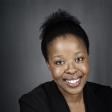SA 'fails' in maths, science rankings

SA's quality of maths and science education failed to impress for the second year in a row, as the country was ranked last among 140 economies on the World Economic Forum (WEF) Global Competitiveness Index for 2015-2016.
The WEF report provides an overview of the competitive performance of 140 countries by providing a ranking and scoring for each economy. The report looks at 12 fundamental pillars of an economy, which include infrastructure, higher education and training, and macro-economic environment, and uses a detailed profile of each to determine present and future prosperity.
The WEF report placed SA's quality of maths and science at higher education and training level last out of 140 economies.
SA's overall quality of education also failed to impress, pulling a ranking of 138 out of 140 economies around the world, according to the report.
In terms of Internet access in schools, South Africa was ranked 119 out of all the countries measured. Tertiary education enrolment was ranked 93 out of 140 countries.
"South Africa needs to address persistent inefficiencies in its labour market, as well as unsatisfactory health and education outcomes," the report reads.
It adds: "Higher secondary enrolment rates will not be enough to create the skills needed for a competitive economy."
Questionable findings
Last year, WEF's Global Information Technology Report also ranked the country's quality of mathematics and science education as last among 148 countries.
The report stated SA's overall quality of education, when taking all subjects into account, was ranked at 146 compared to 140 in 2013.
However, the Department of Basic Education (DBE) criticised the WEF's report, stating it was "not a credible or accurate reflection of the state of education in South Africa".
The DBE said the WEF's report "is based on interviews conducted with business sector executives and reflects nothing more than their personal perceptions". It points to the international 2011 Trends in Mathematics and Science Studies benchmark report that showed improvements in mathematics and science competences of Grade Nine learners, when compared to Grade Nine learners tested in 2002.


